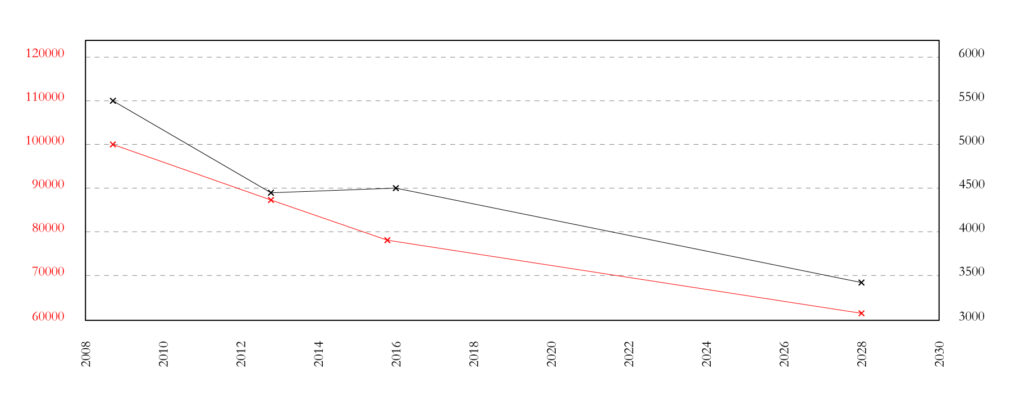6 YEARS
The energetic hinterland of Greece is facing the task of another dramatic transition. The decarbonization process to reach a net-zero emission economy by mid-century requires a significant economic transformation. The Greek government plans to withdraw all lignite plants by 2028, with the majority of units being withdrawn by 2023.[31] This would be 25 years earlier than the lignite industry anticipated based on the natural reserves of the Ptolemaida basin. Long-term dependence on extraction, lack of diversification, as well as the stagnation of other branches are creating a threat of losing thousands of jobs in the coming years. Due to political acts, the low-value, degraded landscape will suffer another socio-economic impact, which will surely influence local communities. It is estimated that the delignification will result in a decline of GDP by 26%, a loss of 2100 jobs, and an employment reduction of 24%. The total income loss for the years 2013-2028 will reach €9 billion.[32]

The strategic direction of the current transition plans requires the backing of transforming and differentiating the economic sectors. West Macedonia will partially remain an energetic landscape, replacing lignite with solar farms and hydrogen production facilities. Additionally, the area will be supported by a more diverse industry involving battery production, the return of agricultural production, and the development of sustainable tourism.
Even though often rendered obsolete, infrastructure systems are still needed. However, the case of Western Macedonia proves that capitalistic approaches of separation of industries to maximize profit are dangerous for the future existence of the hinterlands. Profit-oriented, monofunctional systems have proven to create destructive relations between cities and non-cities. Instead, a new system is required, operating in synergy with different economies and ecologies. Referring to existing knowledge, hinterlands require a new model, with a variety of different, smaller activities. The landscape ‘needs to be reformed as a system of essential resources, services, and agents that generate and support urban economies’.[33]
